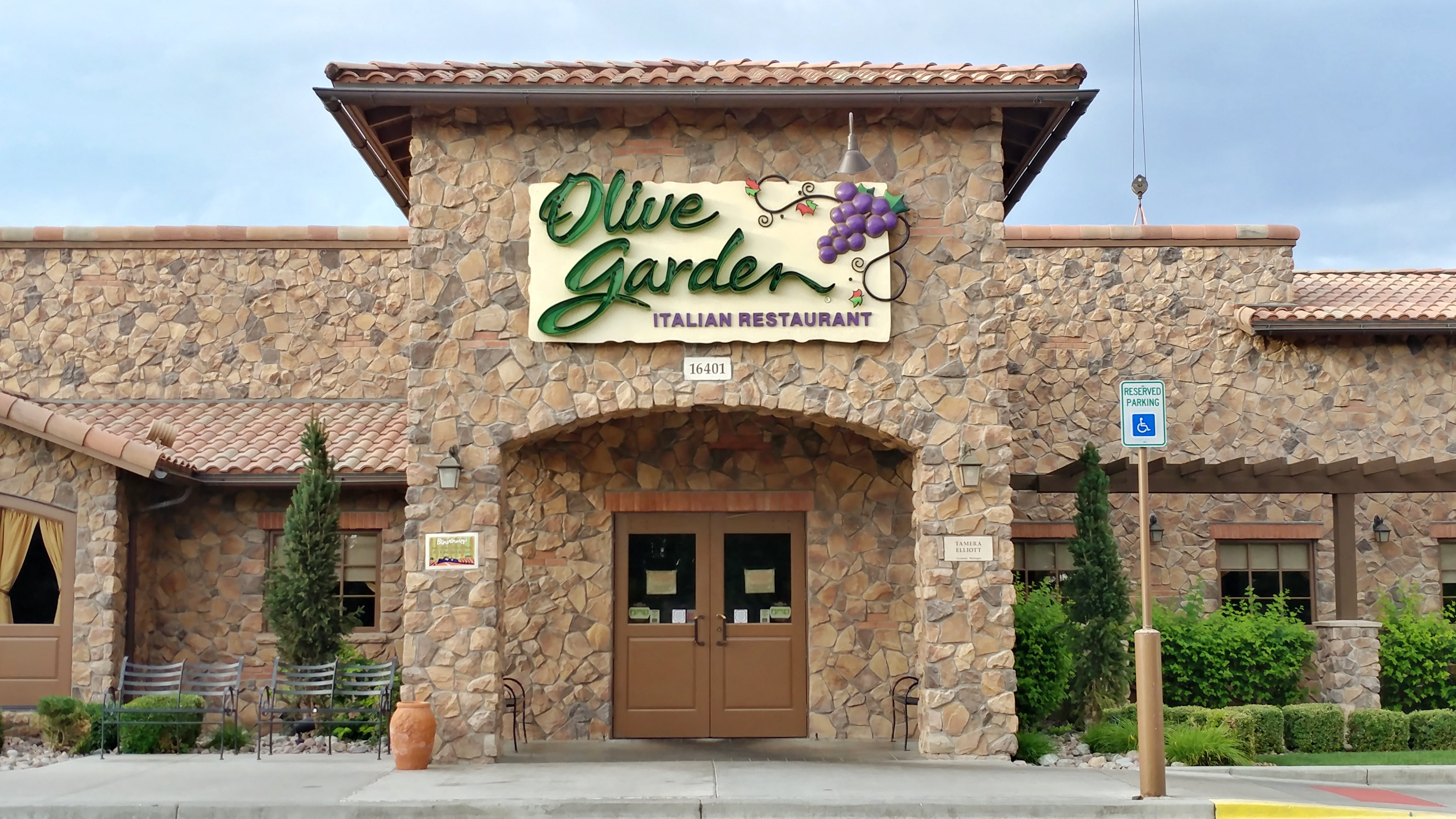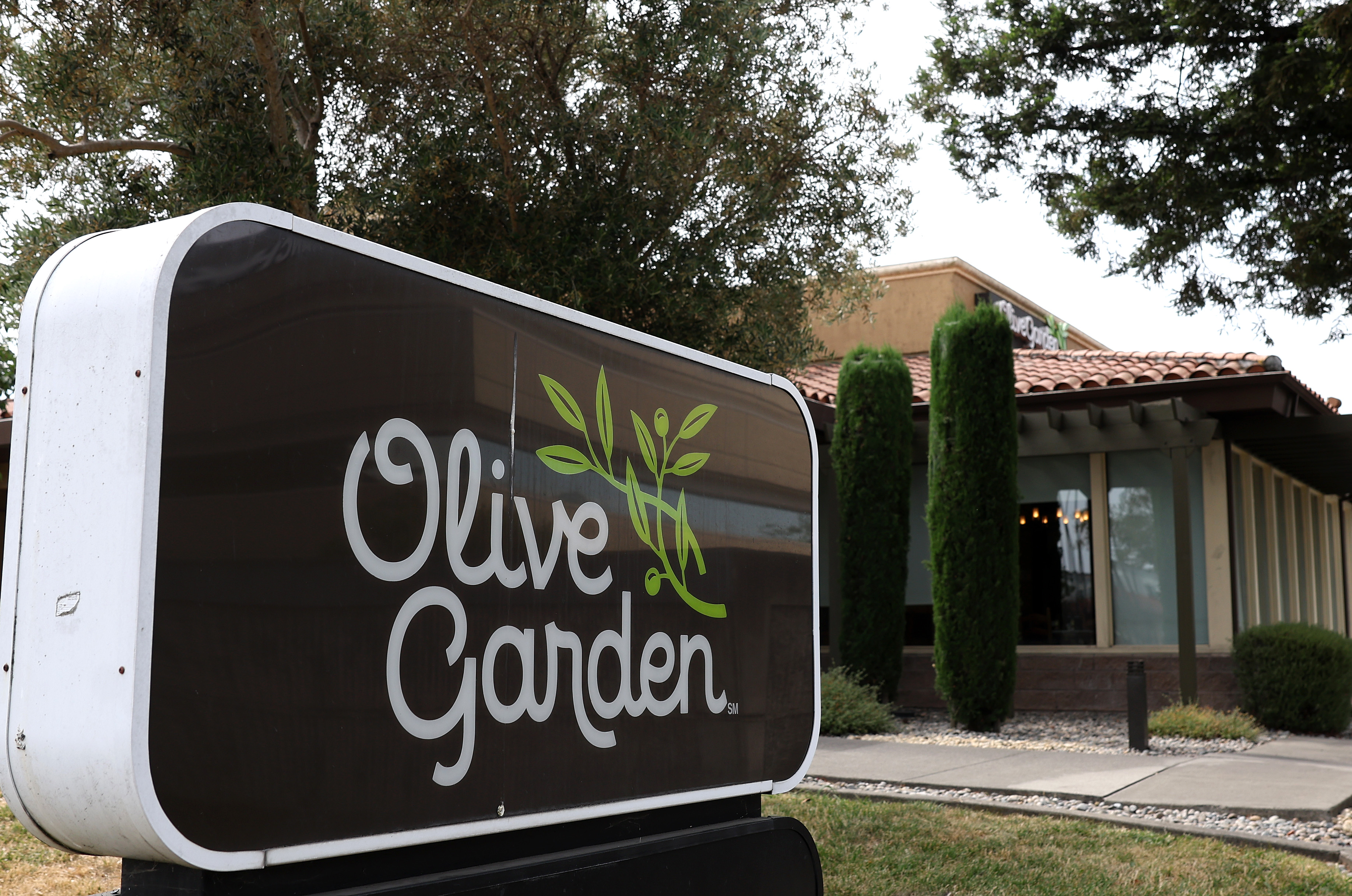Have you ever wondered what happens when a beloved restaurant chain like Olive Garden faces unexpected customer concerns? Recently, Olive Garden found itself at the center of attention due to reports of letters mysteriously appearing on their iconic breadsticks. This unusual situation has sparked curiosity and concern among patrons, prompting the restaurant to address the issue transparently. In this article, we will explore the details surrounding this incident, how Olive Garden responded, and what it means for the brand and its loyal customers.
Olive Garden, a staple in the casual dining industry, is known for its warm hospitality, family-friendly atmosphere, and, of course, its complimentary breadsticks. These breadsticks have become a symbol of the brand’s commitment to providing an exceptional dining experience. However, recent reports of letters appearing on the breadsticks have raised questions about quality control and food safety. This incident has not only caught the attention of customers but also industry experts who are closely monitoring how Olive Garden handles this situation.
In the following sections, we will dive deep into the details of the incident, explore Olive Garden’s response, and analyze the broader implications for the brand. We will also discuss the importance of maintaining trust in the food industry and how Olive Garden’s actions could set a precedent for other restaurants facing similar challenges. By the end of this article, you will have a comprehensive understanding of this unique situation and its potential impact on the dining industry.
Read also:Brice And Liz Break Up Understanding The End Of A Highprofile Relationship
Table of Contents
- Overview of the Incident
- Customer Reactions and Social Media Buzz
- Olive Garden’s Official Response
- The Importance of Quality Control in the Food Industry
- Food Safety Measures and Protocols
- Impact on Olive Garden’s Brand Reputation
- Lessons for the Restaurant Industry
- Rebuilding Customer Trust
- Future Steps for Olive Garden
- Conclusion and Call to Action
Overview of the Incident
The incident involving letters found on Olive Garden’s breadsticks first came to light when customers began sharing their experiences on social media. Several patrons reported noticing small letters or symbols imprinted on the breadsticks, which seemed unusual and out of place. These reports quickly gained traction, with many speculating about the origin and meaning of the markings.
While some customers dismissed the markings as harmless or accidental, others expressed concern about potential contamination or tampering. The ambiguity surrounding the situation led to widespread curiosity and, in some cases, unease among Olive Garden’s customer base. This incident highlighted the importance of transparency in addressing customer concerns, especially in industries like food service where trust is paramount.
Customer Reactions and Social Media Buzz
As news of the incident spread, social media platforms became a hub for discussions and debates. Customers took to platforms like Twitter, Instagram, and Facebook to share their thoughts and experiences. Some posts featured photos of the breadsticks with the mysterious letters, while others included captions questioning the restaurant’s quality control measures.
- Many customers expressed concern about the possibility of contamination or tampering.
- Others speculated that the letters could be part of a marketing campaign or promotional effort.
- A few patrons joked about the situation, turning it into a lighthearted meme.
Impact on Social Media Engagement
The incident significantly boosted Olive Garden’s social media engagement, albeit for reasons the brand may not have anticipated. While increased visibility can be beneficial, the nature of the buzz surrounding this issue posed a challenge for the restaurant. Managing public perception and addressing concerns became a top priority to prevent long-term damage to the brand’s reputation.
Olive Garden’s Official Response
In response to the growing concerns, Olive Garden issued an official statement addressing the situation. The statement emphasized the brand’s commitment to food safety and quality assurance, assuring customers that the markings on the breadsticks were not harmful or intentional.
According to Olive Garden, the letters were likely caused by a manufacturing anomaly during the breadstick production process. The company assured customers that they were investigating the issue thoroughly and working closely with their suppliers to prevent similar occurrences in the future. This proactive approach aimed to reassure patrons and demonstrate the brand’s dedication to maintaining high standards.
Read also:Game Of Thrones Thor Bjornsson The Mountains Journey From Strongman To Screen Legend
Steps Taken by Olive Garden
- Conducted a thorough investigation into the manufacturing process.
- Collaborated with suppliers to identify and address the root cause.
- Issued a public apology and reassurance to customers.
The Importance of Quality Control in the Food Industry
Quality control is a critical component of the food industry, ensuring that products meet safety and quality standards. For a brand like Olive Garden, maintaining consistent quality is essential to preserving customer trust and loyalty. This incident underscores the importance of rigorous quality control measures at every stage of the production process.
From sourcing raw materials to packaging and distribution, each step must adhere to strict guidelines to prevent issues like the one involving the breadsticks. By implementing robust quality control systems, restaurants can minimize the risk of errors and ensure that customers receive safe and enjoyable dining experiences.
Food Safety Measures and Protocols
Food safety is a top priority for any restaurant, and Olive Garden is no exception. The brand adheres to industry-standard protocols to ensure that its food is safe for consumption. These protocols include regular inspections, employee training, and compliance with health regulations.
Key Food Safety Practices
- Regular inspections of kitchen facilities and equipment.
- Training staff on proper food handling and hygiene practices.
- Implementing traceability systems to track ingredients from source to plate.
By prioritizing food safety, Olive Garden aims to reassure customers that their dining experience is both enjoyable and secure.
Impact on Olive Garden’s Brand Reputation
While the incident involving the breadsticks was unexpected, it provided Olive Garden with an opportunity to demonstrate its commitment to transparency and accountability. How a brand responds to challenges can significantly influence public perception and long-term loyalty.
In this case, Olive Garden’s swift and transparent response helped mitigate potential damage to its reputation. By addressing customer concerns head-on and taking immediate action to resolve the issue, the brand reinforced its dedication to quality and customer satisfaction.
Lessons for the Restaurant Industry
The Olive Garden breadstick incident serves as a valuable lesson for the restaurant industry as a whole. It highlights the importance of proactive communication, robust quality control measures, and a customer-centric approach to problem-solving.
Key Takeaways for Restaurants
- Prioritize transparency when addressing customer concerns.
- Invest in quality control systems to prevent similar incidents.
- Foster a culture of accountability and continuous improvement.
By learning from this incident, other restaurants can strengthen their operations and build stronger relationships with their customers.
Rebuilding Customer Trust
Trust is the foundation of any successful business, especially in the food industry. When incidents like the one involving Olive Garden’s breadsticks occur, rebuilding trust becomes a top priority. This process involves not only addressing the immediate issue but also implementing long-term strategies to prevent future occurrences.
Olive Garden’s response to the incident demonstrated its commitment to earning back customer trust. By taking responsibility, providing clear communication, and implementing corrective measures, the brand has taken significant steps toward restoring confidence among its patrons.
Future Steps for Olive Garden
Looking ahead, Olive Garden has outlined several initiatives to ensure that similar incidents do not occur in the future. These initiatives include enhancing quality control measures, conducting regular audits, and fostering open communication with customers.
Planned Initiatives
- Introducing advanced quality control technologies in production facilities.
- Expanding training programs for employees on food safety and quality assurance.
- Engaging with customers through surveys and feedback channels to address concerns proactively.
By taking these steps, Olive Garden aims to reinforce its position as a trusted and reliable dining destination.
Conclusion and Call to Action
The incident involving letters found on Olive Garden’s breadsticks serves as a reminder of the importance of transparency, quality control, and customer trust in the food industry. While the situation was unexpected, Olive Garden’s response demonstrated its commitment to addressing concerns and maintaining high standards.
As a reader, we encourage you to share your thoughts on this incident in the comments below. Have you experienced similar situations at other restaurants? How do you think brands should handle unexpected challenges? Additionally, feel free to share this article with others who may find it informative. For more insights into the restaurant industry and food safety, explore our other articles on this topic.

